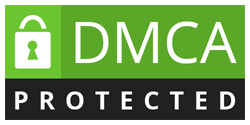how to became literate in English and in Arabic.
ASSE 2111: Learning Outcome Assessment I
Individual Assignment 1
Literacy Autobiography (10%)
• Due dates will be posted on Blackboard for each of the assigned tasks.
Purpose of Assignment
In this assignment, you will be guided to reflect on your past and current literacy practices. The goal is to communicate your literacy autobiographies in such a way that illustrates who you are as literate beings in the digital era of the 21 century.
This assignment is also designed to help you start reflecting on your learning, which will later help you in writing your reflection essays or statements your Portfolio.
Requirements
1. Each student will write a 1 ½ page essay demonstrating how they became literate in English and in Arabic.
Objectives
you will:
• Reflect on what it means to be literate and reflect on the socio-cultural and historical factors that influence our literacy development and literacy practices across our lifespan.
• Review the list of literacy autobiographies of college students from different parts of the world. Such online literacy autobiographies will help you to think of yourselves as readers and writers within different situations: in your homes, in your schools, and etc.
Preparation
For this assignment, review this list of literacy autobiographies provided in the appendix and also a list of guiding questions on the assigned task.
Instructional media: Tools and Resources
• Word-Processing, Digital multimedia software
Description, Procedure & Activities
• Reflecting on your past pleasant and/or upsetting literacy experiences would help to expand an in-depth understanding of the factors, experiences and events that influence the literacy development within your micro-culture
• To help you retrieve and recall your previous and current memories of your literacy practices think about these questions. What experiences do you remember that might have influenced your literacy development across your lifespan? How did you manage to be fluent in Arabic and English? Have you been exposed to multimedia oriented literacies (movies, computer games, etc) during your childhood? What is the impact of such literacy experiences on the way you view yourself now as a literate being?
• Your written product will be evaluated by the instructor according to rubrics (for the written see appendix A).
Page down to view Appendix A – (the rubric for grading the written essay)
Appendix A – Grading Rubric for Written Essay
A + (96 – 100)
• The written piece is well organized and well developed, showing very smooth flow of ideas
• Shows innovation of ideas and stimulates reflective thinking within the reader.
A (90 – 95)
• Uses details and specific relevant examples to support a clearly defined, focused, and well expressed position, showing a refined sense of audience.
• Demonstrates appropriate word choice, syntactic variety, and few, if any grammatical or mechanical errors.
B + (86-89)
• Generally well organized, developed, and has a sense of audience.
• Effectively addresses some parts of the task more than others.
B (80 – 85)
• Use considerable details and examples to support the position thoughtfully but less insightfully.
• Appropriate word choice and use of language with no more than 5 mechanical errors.
C + (76-79)
• Addresses the topic satisfactorily but does not provide enough supporting detail
C (70 – 75)
• Acceptably organized and developed but the position of the writer is not stated clearly.
• Contains some errors that occasionally make meaning ambiguous.
D + (66-69)
• Inadequate organization and demonstrates lack consistency and unity among ideas.
• Demonstrate several good details and examples but missing details to support the point in crucial parts.
• Inappropriate choice of words and display few if any transitions
• Accumulation of errors in sentences structure in addition to numerous of misspelled words
D (60 – 65, no pass)
• Serious disorganization and lack of unity.
• No details to support the topic.
• Serious problem with sentences structure numerous of sentence fragments and misspellings.
F (0 – 59)
• Unfocused, incoherent, undeveloped, and the paper is off the topic
• Contains consistent writing errors.
• Generally, the assignment has been taken sloppily.
Appendix B
Literacy Autobiography Internet Resources
Sample Literacy Autobiographies
• http://butipreferreading.blogspot.com/2012/01/example-student-literacy-autobiography.html
• http://katherineliteracyautobio.blogspot.com/
• http://voices.yahoo.com/how-write-literacy-autobiography-41902.html
• http://www.inkshed.ca/nlett399/autobios.htm
Guiding Questions
• Literacy Questions – Questions to get you started writing and reflecting on your past memories as a reader http://falcon.tamucc.edu/wiki/SMurphy/LiteracyQuestions
• Discovery and exploration prompts for a Literacy Autobiography –http://www-tcall.tamu.edu/newsletr/winter13/winter13x.htm
Use these online questions to help you write and explore your literacy
autobiography




